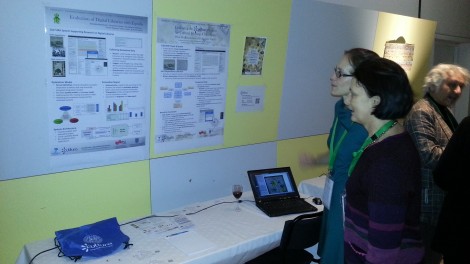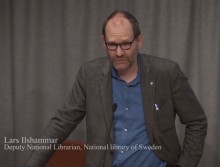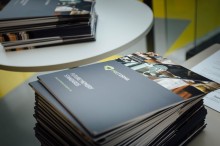 Two CULTURA posters have been presented at the NODEM Conference in Stockholm on 3 December 2013.
Two CULTURA posters have been presented at the NODEM Conference in Stockholm on 3 December 2013.
The first poster “Evaluating the CULTURA System for Cultural Heritage Collections: What do Researchers of Tomorrow Think?” reported on an evaluation study conducted with Irish history students.
The second poster “Integrating and Testing the Evaluation Service Equalia for Digital Libraries and Beyond” presented the Evaluation Service Equalia and how it is integrated with the CULTURA System.
Numerous discussions with conference participants raised awareness of the CULTURA project and its approach and solutions.






 If you have interesting news and events to point out in the field of digital cultural heritage, we are waiting for your contribution.
If you have interesting news and events to point out in the field of digital cultural heritage, we are waiting for your contribution.
























